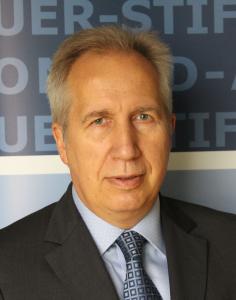The most prominent and internationally much commented on topic in the run-up to the election was the rampant electoral violence, which had serious effects on the electorate and on the candidacies in the states in the form of physical intimidation, kidnappings and even assassinations of candidates. In areas where the individual cartels have a significant presence and exercise territorial control, their influence on the elections is particularly high. A total of 36 candidates were murdered up to the last day before the election; a total of 222 of around 170,000 so-called “voting tables”, i.e. polling stations, could not be implemented due to the security situation, mostly in the states of Chiapas and Michoacán.
Election day on Sunday, June 2 itself was comparatively calm and orderly, given the bloody circumstances of the election campaign. There were only very isolated reports of specific disruptions to the election process, but these are unlikely to have had a significant impact on the overall election result. Over 1,300 international election observers were officially accredited, but even they had little to complain about. At around 60%, voter turnout was below the 2018 result (63%) and far from the opposition's forecasts and hopes (>65%). The long queues outside the polling stations had suggested a higher voter turnout, but this was more likely due to the slow voting process and organizational problems, not a higher presence of citizens at the polls.
The domestic and foreign policy challenges described in the KAS country reports[1] before the election are of course still present after election night, as are the associated question marks as to how exactly the de facto elected President Sheinbaum intends to tackle, manage and prioritize them. The “Keep it up!” or “Deepening the 4th Transformation” - whatever that was supposed to mean - repeatedly repeated like a mantra during the election campaign are no longer enough.
The opposition's optimism gave way to sheer horror as time went on and at the latest after the projections were announced. Not only the lost gubernatorial elections, for the PAN above all the (probable) loss of Yucatán, but in particular the predicted distribution of seats in Congress reduces the role of the opposition to that of an observing extra. Only the Senate could still represent a narrow barrier; the other losses are monumental and could not have been expected to this extent.
It is difficult to predict what role the opposition as a whole can play with a reduced territorial presence and an almost insignificant presence in Congress. Perhaps a look back to the 1970s and 1980s in Mexico will help, where a similar political configuration already prevailed (at that time under the dominance of the state party PRI) and the opposition was able to slowly and laboriously work its way forward via municipal levels, but with a coherent and credible alliance with representatives of civil society. In the case of the 2024 election, this was only the case to a very limited extent; there are reasons for the election defeat, but also elements for a political reorganization process.
Whether the hope expressed by some observers that the “scientist” Sheinbaum will act more rationally and pragmatically than the instinctive politician AMLO will prove to be true remains to be seen with caution. The fact that the political counterweights are now de facto absent and the concentration of power is even more pronounced than in the previous government also entails the significant risk that even more ruthless “rule by decree” could now take place; the incentives for more authoritarianism are there and could now be cemented by constitutional amendment.
[1] Mexico ahead of the election - Konrad-Adenauer-Stiftung (kas.de)
The full-length publication is only available in german.
Topics
Provided by
Auslandsbüro Mexiko
About this series
The Konrad-Adenauer-Stiftung is a political foundation. Our offices abroad are in charge of over 200 projects in more than 120 countries. The country reports offer current analyses, exclusive evaluations, background information and forecasts - provided by our international staff.



